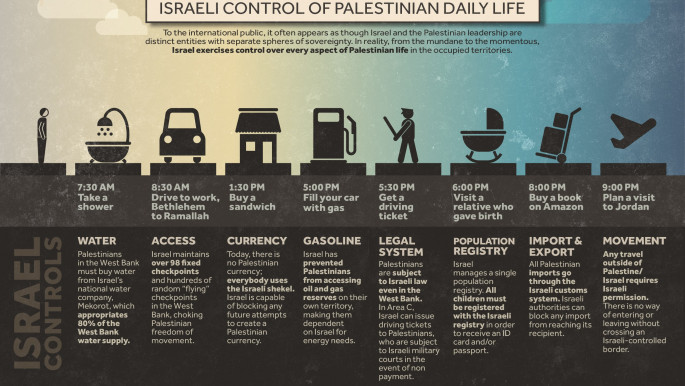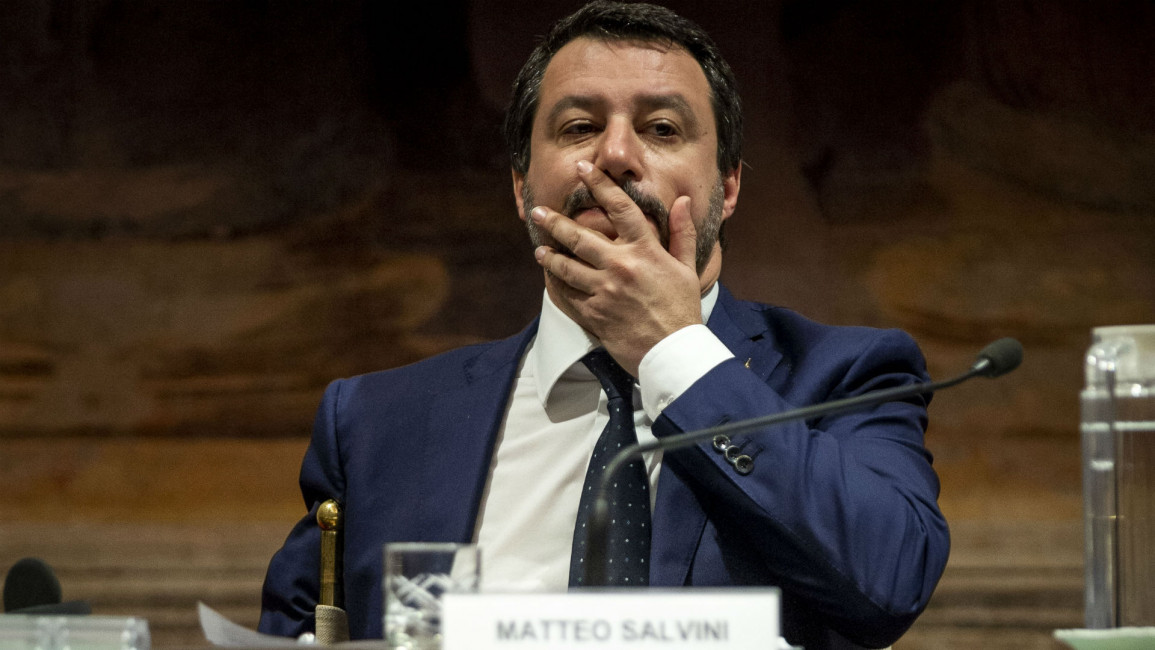Follow us on Twitter and Instagram to stay connected
Italy's right-wing opposition party pledges to recognise Jerusalem as Israel's capital if elected
Matteo Salvini is the head of Italy's populist League Party, renowned for peddaling anti-immigrant and anti-Muslim rhetoric and propaganda.
The party is expected to gain a large proportion of the votes in upcoming elections, which could see Italy following Donald Trump's move of shifting the US embassy in Israel from Tel Aviv to the contested city of Jerusalem.
In an interview with the Israel Hayom, Salvini pledged to "absolutely" recognise Jerusalem as the capital of Israel instead of Tel Aviv, if he is voted in as prime minister.
Although he acknowleged the role of the far-right in promoting anti-Semitism in Europe, he also blamed "radical Islamists" for the problem.
"I think that it has to do with the strengthening of Islamic extremism and fanaticism in the last years. Most importantly, it is connected to the fact that some academics and media are mobilised against Israel, and they create hate of Israel to justify anti-semitism," he said.
"There is, of course, anti-Semitism of small political minority groups - Nazis and communists. But, now the massive presence in Europe of migrants coming from Muslim countries, among whom are many fanatics who are getting the full support of certain intellectuals, is spreading anti-semitism, in Italy as well."
Salvini also spoke about banning the non-violent Boycott Divestment Sanctions (BDS) protest movement and called for stronger sanctions on Iran.
A smokescreen for complacency?
Despite his stance on Israel, Salvini has been accused of being complacent about anti-semitic attacks on Italy’s Jewish population.
In November, an 89-year-old Auschwitz survivor who is a senator-for-life in Italy, unwittingly provoked one of the country's most publicised debates on anti-semitism since the end of Italy’s Fascist dictatorship during World War II.
Liliana Segre said she has been subject to around 200 attacks on social media a day, and called for the creation of a parliamentary committee to combat hate, racism and anti-semitism.
Parliament approved her motion - but without the votes from Italy's right-wing parties.
Salvini's League Party, along with Silvio Berlusconi's centre-right Forza Italia and Giorgia Meloni’s far-right Brothers of Italy all abstained.
|
||
This is a growing problem in Europe, academics say.
"In Eastern, Southern, and Central Europe, modern and Christian anti-semitic tropes frequently recur. Indeed, several leaders of right-wing populist parties frequently travel to Israel to emphasize their sympathies," Professor Ruth Wodak wrote in The Oxford Handbook of the Radical Right.
"However, in Israel, they prefer to meet with Israeli extreme right-wing parties, with whom they share their exclusionary rhetoric and form anti-Muslim alliance."
Tel Aviv has repeatedly accused individuals, organisations and international bodies of speaking against Israeli actions against Palestinians of being anti-semitic.
Two State Solution 'dead'
Israel occupied East Jerusalem in the 1967 Six-Day War and later annexed it in a move never recognised by the international community.
It considers the entire city its capital, while the Palestinians see the eastern sector as the capital of their future state.
Most countries have their embassies in the coastal city of Tel Aviv.
In December 2017, US President Donald Trump broke with a decades-long consensus that the city's status should be decided in peace negotiations between the two sides.
His recognition of the city as Israel's capital and subsequent embassy move in May 2018 sparked outrage amongst Palestinians and across the world.
The move to recognise Israel as Jerusalem's capital is seen as an destroying any prospect of a Palestinian state.




